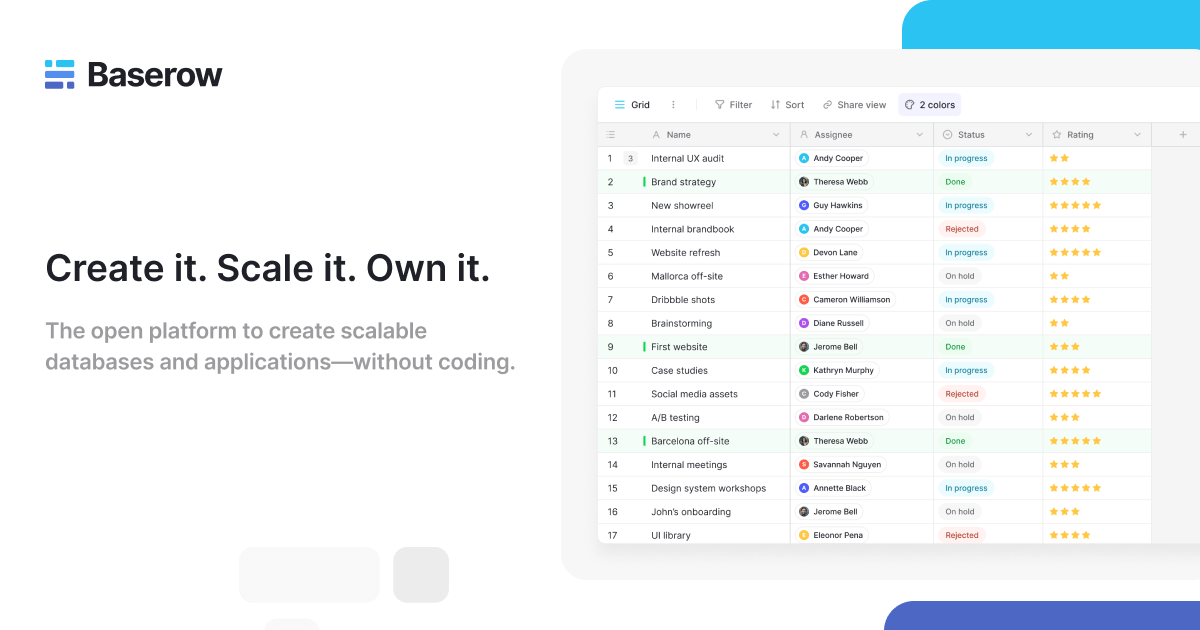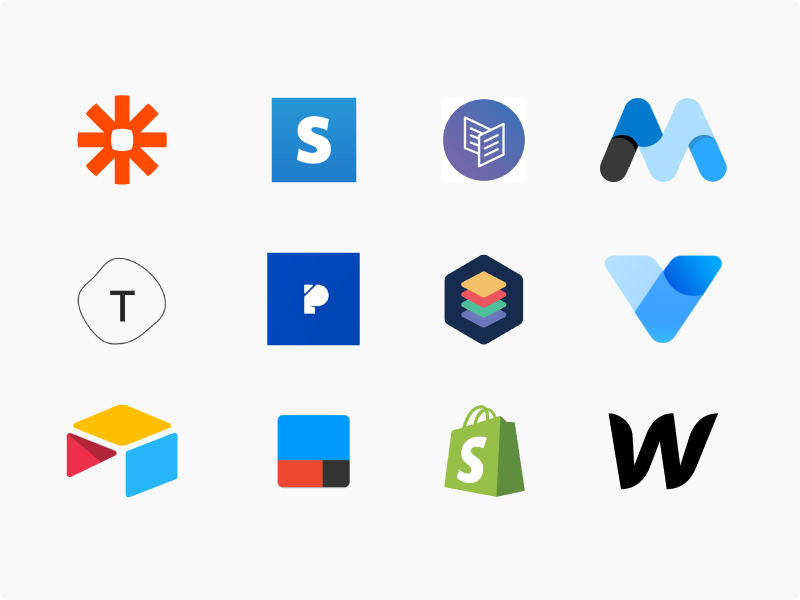Discovering the Benefits of Scalable Data Sources That Require No Coding Abilities for Reliable Information Administration Solutions
The development of scalable databases that eliminate the need for coding skills offers a transformative opportunity for companies seeking reliable information administration services. As we take into consideration the implications of such advancements, it becomes critical to check out exactly how they can improve the landscape of information administration and drive sustainable development in an affordable atmosphere.
Improved Accessibility for Individuals
Improved access for individuals is a critical aspect of scalable databases, making certain that data administration systems are user-friendly and user-friendly. In a period where data-driven decisions are vital, ease of access allows a bigger variety of customers, including those without extensive technical knowledge, to engage with data source systems properly. This democratization of information gain access to facilitates boosted partnership across departments, encouraging workers to remove insights and make educated decisions.
User-friendly user interfaces, such as visual data and drag-and-drop functions representation, simplify complex information interactions. These enhancements decrease the knowing curve connected with typical database monitoring, making it possible for individuals to focus on leveraging information instead of facing technical intricacies. Scalable data sources typically integrate real-time analytics and personalized control panels, giving individuals with instant understandings customized to their certain requirements.

Cost-Effectiveness and Resource Financial Savings
Effective information monitoring not only depends upon availability however additionally on cost-effectiveness and resource savings. Scalable data sources developed for customers with no coding skills dramatically decrease economic problems generally connected with conventional database monitoring systems. By removing the requirement for specialized shows know-how, organizations can assign their sources more effectively, focusing funds on core organization activities instead of considerable training or working with skilled employees.
Additionally, these databases frequently use cloud-based services, which further minimize expenses associated with equipment and upkeep. Organizations can scale their data source options according to their requirements, staying clear of the expenses incurred from over-provisioning sources. This adaptability implies services can adapt to altering needs without sustaining unnecessary prices, bring about significant long-lasting savings.
Additionally, easy to use interfaces enhance information entry and monitoring procedures, minimizing the time invested in management tasks. This efficiency equates right into labor price financial savings, allowing teams to concentrate on tactical efforts instead than regular upkeep. In general, embracing scalable databases that need no coding abilities promotes a much more cost-efficient method to data monitoring, enabling companies to optimize their resources while keeping high levels of functional performance.
Improved Cooperation Across Teams

Additionally, scalable databases help with smooth interaction amongst group participants. With user-friendly interfaces that need no coding skills, workers can conveniently develop, modify, and share reports or dashboards tailored to their specific requirements. This democratization check this site out of information encourages non-technical customers to add understandings, improving the joint environment.
In addition, these databases support simultaneous gain access to, permitting multiple users to work with the very same dataset simultaneously. This function boosts efficiency, as groups like it can engage in joint data analysis without the danger of variation control problems. The ability to leave remarks or notes directly within the data source even more promotes dialogue and makes clear information interpretations.
Streamlined Data Monitoring Processes
In today's data-driven atmosphere, companies recognize the requirement of streamlined information management processes to optimize effectiveness and precision. By leveraging scalable data sources that need no coding skills, companies can simplify their information handling and lower the complexities commonly related to standard database systems. This access encourages non-technical users to engage directly with information, helping with quicker decision-making and lowering dependence on specialized IT employees.
Structured data monitoring processes improve workflow by automating regular jobs such as information access, validation, and reporting. Automated information combination makes sure that information from different sources is accumulated effortlessly, eliminating silos and cultivating a combined sight of important company metrics (no-code). Straightforward user interfaces allow employees to adjust data conveniently, enabling them to create understandings that drive strategic initiatives without the demand for substantial training.
This efficiency not only increases operational procedures however also minimizes the capacity for human mistake, ensuring that data continues to be precise and dependable. Inevitably, structured information monitoring procedures via scalable databases result in enhanced performance, permitting companies to concentrate on core tasks while making certain that their information monitoring practices are efficient and reliable.
Scalability for Expanding Companies

For broadening business, the capacity to scale up or down is vital. A scalable database can handle an increase of data created from brand-new clients, items, or services, ensuring that organization operations remain continuous. These data sources give the capacity to take care of peak tons effectively, which is crucial during periods of rapid growth or seasonal spikes.
Furthermore, numerous scalable data source services are created with user-friendly user interfaces that call for no coding skills, equipping non-technical team to take care of data successfully (no-code). This democratization of information administration allows companies to designate resources tactically and minimize reliance on specialized IT employees
Eventually, embracing a scalable database not just enhances functional performance yet also cultivates a setting where services can innovate and develop without the constraints of standard database systems. This versatility settings companies for lasting success in today's competitive landscape.
Verdict
In conclusion, scalable data sources that call for no coding abilities give significant advantages for effective information management. By i was reading this improving information administration procedures and using scalability for expanding businesses, such remedies allow companies to adjust to transforming demands successfully.
Improved ease of access for customers is a crucial aspect of scalable data sources, making sure that data administration systems are straightforward and intuitive.User-friendly interfaces, such as drag-and-drop functions and visual information depiction, simplify complex data interactions. Generally, embracing scalable data sources that call for no coding skills cultivates an extra affordable approach to information administration, enabling organizations to maximize their sources while maintaining high degrees of functional performance.
By leveraging scalable databases that need no coding abilities, companies can simplify their data handling and reduce the complexities generally connected with traditional data source systems - no-code.Structured data management processes improve operations by automating regular tasks such as data access, recognition, and coverage